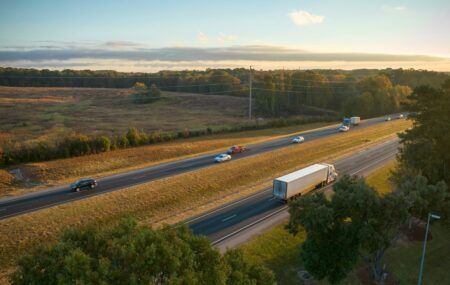The Virginia Tech Transportation Institute (VTTI) will take part in the testing of ‘anonymous’ autonomous vehicles on public roads for the first time, following the introduction of new legislation in the state.
The bill allows the Virginia Department of Motor Vehicles (DMV) to issue standard license plates to automated vehicles used by institutions of higher learning, such as the VTTI, for purposes of vehicle technology research. The Institute says the new provision should result in enhanced and unbiased research results.
“Naturalistic testing of automated vehicles on public roadways requires that we do not highlight the vehicles as ‘different’,” said Myra Blanco, director of the VTTI’s Center for Public Policy, Partnerships and Outreach. “Conducting naturalistic data collection with a standard license plate, meaning the vehicle could not be easily identified from other vehicles on the roadway, allows us to perform a realistic comparison to other vehicles and traffic. This ensures any differences on user performance, either inside or outside of the vehicle, are not due to the vehicle being differentiated among others on the roadway while the testing is performed.”
As a pioneer of the naturalistic driving study method, the institute has long led real-world testing and development of next-generation vehicular technology, with the goal of enhancing driver safety, mobility and sustainability. Earlier this year, VTTI authored a Google-commissioned report in which national crash data and data from naturalistic driving studies were used to better estimate existing crash rates. These rates were then compared with data from Google’s Self-Driving Car program. The institute also recently led a demonstration of automated and connected vehicles along Interstate 95 as part of the Virginia Automated Corridors project in partnership with the Virginia Department of Transportation (VDOT), the Virginia DMV, Transurban and HERE.
The legislation, signed by Virginia governor Terry McAuliffe earlier this month, also allows the sale of motor vehicles that can display moving images while the car or truck is in automated driving mode. McAuliffe signed a new bill designed to ensure Virginia consumers can purchase vehicles that will be equipped with automated technologies, and will have access to driving technologies that promote advanced safety standards.
The legislation states that motor vehicles may be equipped with visual displays of moving images if the equipment is factory-installed and has an interlock device that disables the equipment when the human driver is performing the driving task. While the current law allows a visual display in a motor vehicle, the new bill allows the display of moving images to be viewed while an automated driving system is activated.
“Making Virginia a leader in emerging industries like autonomous vehicles is an essential part of our efforts to grow and diversify our economy,” said McAuliffe. “I am proud of the progress we are making in Richmond, and at great centers of research and innovation like Virginia Tech, to pave the way for a new generation of automotive advancements and economic growth.”




